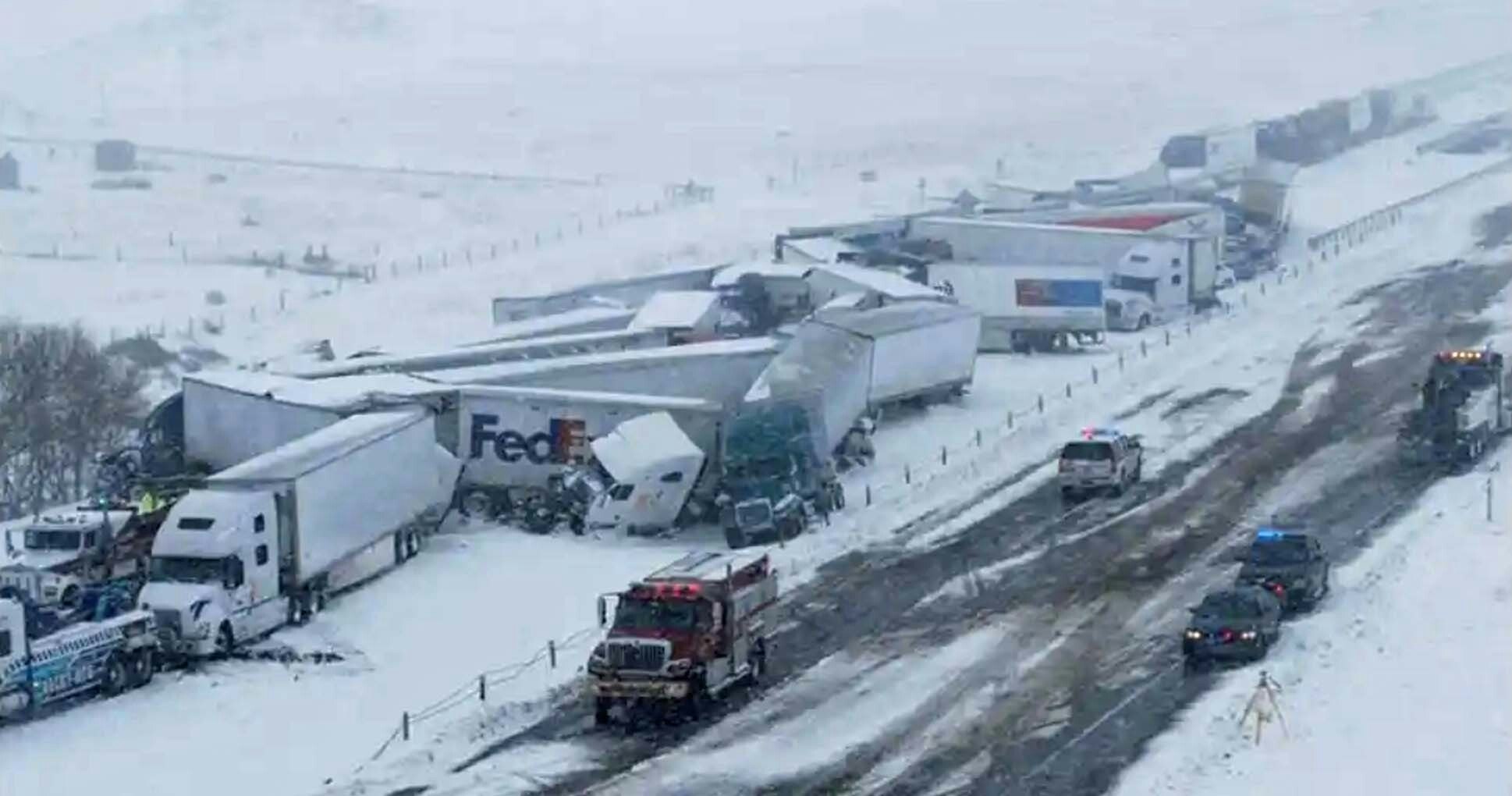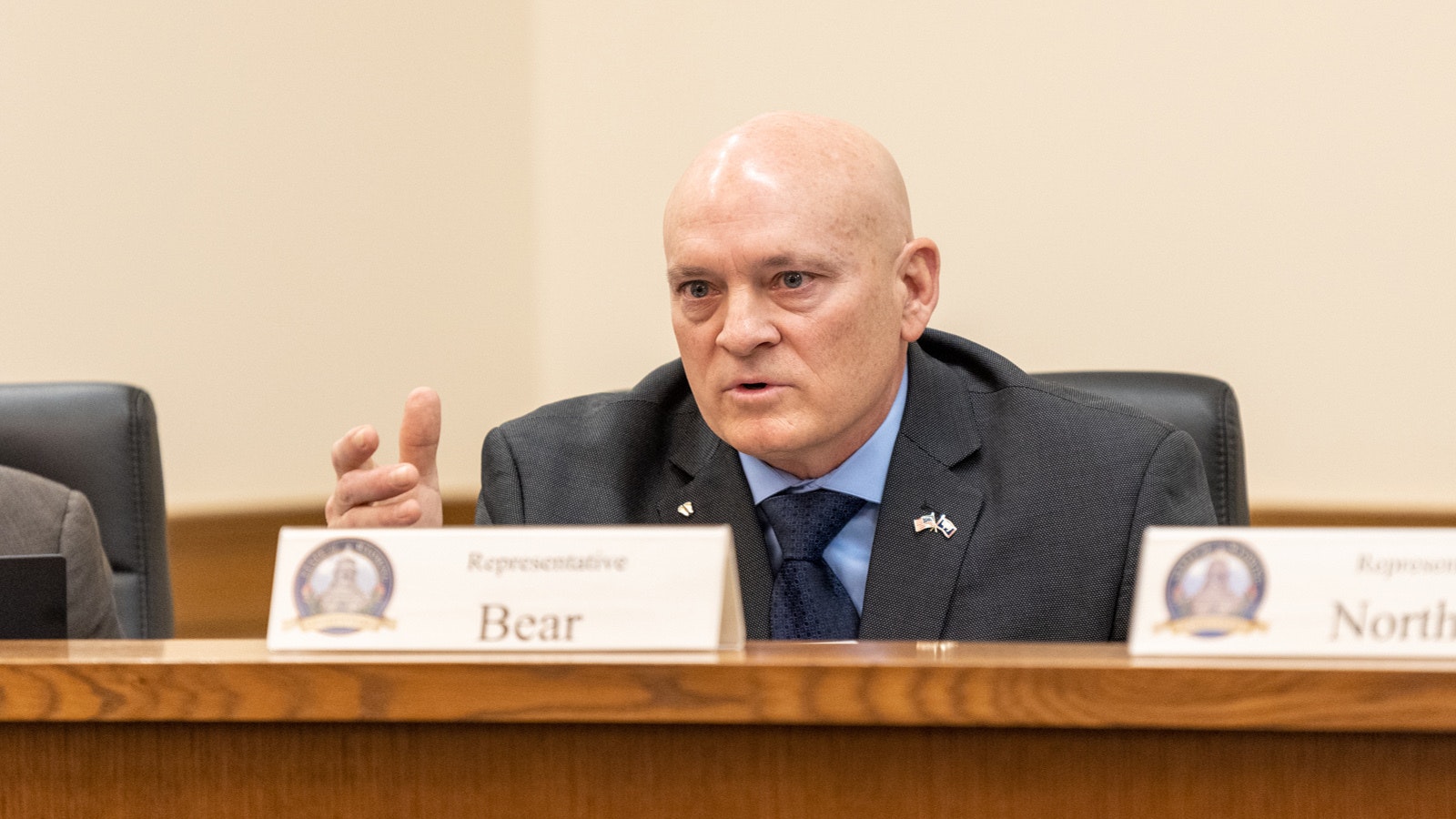By Bill Sniffin, publisher emeritus
Did you know that when Interstate 80 is closed for weather, that US 30 next door is automatically closed, too?
This is to prevent the 8,000 semi-trailer trucks a day from storming that more narrow, more local highway as an alternate route. The resulting crush of giant rigs would be a disaster.
Those frequent closures create a national financial disaster when goods are no longer moving to their destinations.
Del McOmie Jr. pointed out this fact out when he was asked about the creation of an alternate Interstate 80 highway that would follow the current US 30 road through Hanna, Medicine Bow, Rock River, and Bosler, enroute to Laramie.
McOmie knows all about Interstate 80 or as it is nicknamed Snow Chi Mihn Trail. He worked for Wyoming Department of Transportation (WYDOT) for almost 36 years. He also was chief engineer for 15 years. He knows these roads.
So why not build an Interstate 80 alternate route on the current route of US30? It would be good news for national economy.
In an excellent article in Cowboy State Daily by Wendy Corr, the current director of WYDOT, Luke Reiner, thoughtfully suggested the federal government consider spending $6 billion by re-routing Interstate to the US 30 route.
Reiner said the agency has made a unique proposal to the federal government – rerouting I-80 to avoid the part of the interstate that closes most often.
“If you look at a map, you’ll see that the old highway, Highway 30, goes further to the north, and then sort of comes down from the north into I-80,” Reiner said. “Rumor has it that when they went to build I-80, that the initial route followed the route of Highway 30. And somebody made the decision, ‘No, we’re going to move closer to these very beautiful mountains,’ to which the locals said, ‘Bad idea,’ based on weather. And it has proved to be true.”
Reiner said if the interstate could be shifted to the north, many weather-related closures could be avoided.
“Our suggestion to the federal government is to say, ‘If you want to do something for the nation’s commerce along I-80, reroute it. Follow Highway 30 — it’s about 100 miles of new interstate, the estimated cost would be about $6 billion,’” he said. “So, it’s not cheap, but our estimate is that it would dramatically reduce the number of days the interstate’s closed, because that’s the section that kills us.”
When it came to the topic for this article, my idea to McOmie was not to move the designated road, but rather build an alternate route with a different number like Interstate 280 or Interstate 680?
McOmie agrees with Reiner as far as using US 30 in concerned. He said he thought building an alternate route would cost less than $6 billion, maybe as little as $3 billion, if you followed the old US30 roadway.
But the exciting part of this proposal, McOmie said, is that if there was a viable alternative route for all those trucks, the effect on the national economy would be very positive. He thinks based on all the lost revenue caused by closed Interstate 80, it could more than justify building a second Interstate Highway north of the current route.
McOmie said to get a different designation requires national action. AASHTO, the American Association of State Transportation Officials, has to make that designation. “You have to have the right designation to get it approved,” McOmie said. This is to maintain continuity with the rest of the highways across the country.
McOmie says Interstate 80 is a heavy truck route. It is often very busy. It is one of the busiest truck routes in the USA, he said. It moves a lot of goods from the three biggest ports on the west coast.
From a purely capacity standpoint, the number of vehicles is not extremely high compared to metro areas. However, it feels congested, due in a large part, to the number of trucks. “When we talk about highway capacity, there is a term called ‘side friction,’ where one truck equals nine cars,” he says. So those 8,000 trucks equates to what 72,000 vehicles would feel like.
It always feels worse on Interstate 80 because of the up and down grades, the constant unpredictable weather, the high winds, the large volumes of trucks versus cars, and the constant starting and stopping, McOmie said. “And then you have some trucks going 65 mph and others going 80.”
Reiner said that essentially, I-80 all the way across Wyoming is a mountain pass.
“I mean, it’s 6,200 feet,” he said. “And so that brings its own trouble, and then of course the drastic wind events, the high wind events and blowing snow that we have in Arlington, around Elk Mountain, really caused a lot of trouble.”
According to staff at WYDOT, in February of 2021, I-80 was closed to commercial truck traffic almost 12 percent of the daytime hours that month; in December of 2021, the highway was closed to commercial traffic almost 16 percent of the month due to inclement weather.
“(I-80) is closed more to high profile light vehicles then it is closed to all traffic,” Reiner said. “And that’s an important distinction, because we cannot control the wind events.”
Beyond the impact on Wyoming traffic, Reiner pointed out that closures on this particular stretch of interstate affect the whole country.
“That wind event negatively affects the economy of our nation, because it stops the trucks,” he said. “I-80 is a route of national commerce. And when we shut it down, we’re all just very aware that it’s a big deal.”





